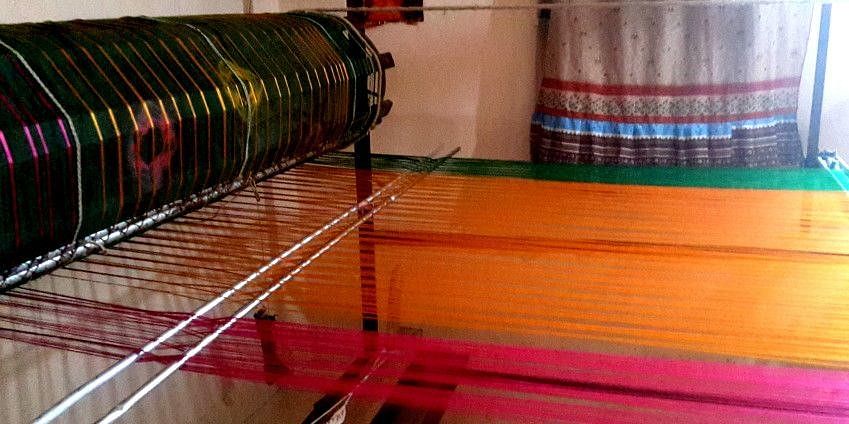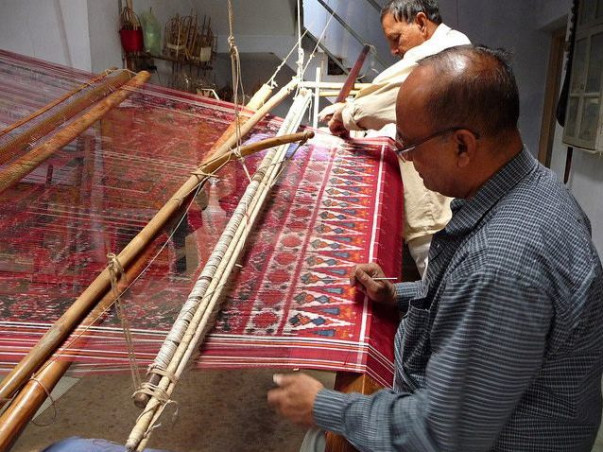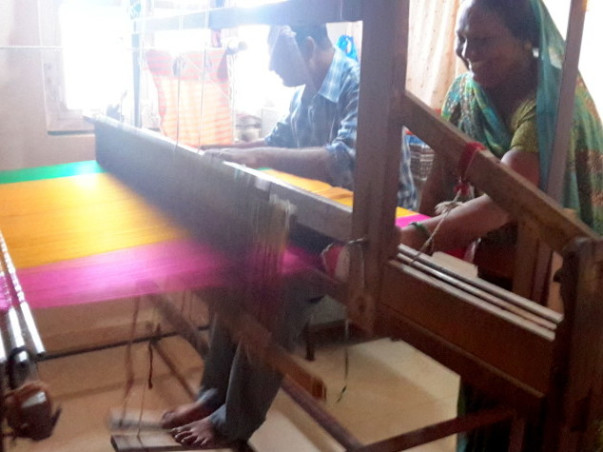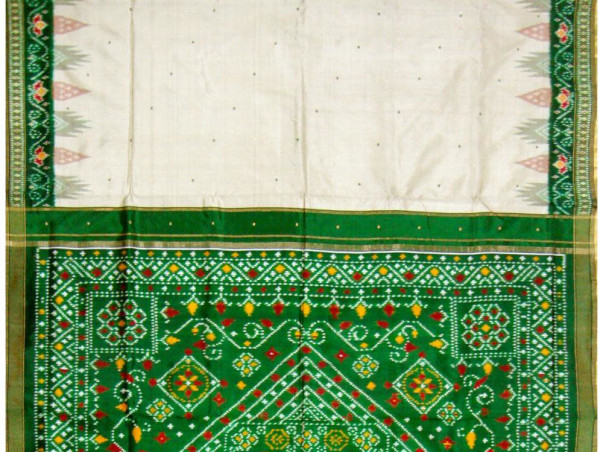Patola comes from an ancient history that goes back to the 11th century. For eons now, it has been one of the major export elements to Southeast Asia and the Dutch Indies. Many consider Patola as the ‘ultimate manifestation of weaving perfection’ because the displacement of even one thread can resulted in a deformed pattern. Also, the dyeing and the weaving process is extremely complicated, requiring mathematical precision coupled with a vivid imagination.
The Patola weavers of Wadhwan (Surendranagar, Gujarat) have been unsung torchbearers of the craft for centuries. They shoulder the crucial responsibility of preserving and passing on the traditional art form, while fostering local economies, keeping money close to home and supporting neighbourhoods and communities. Social distancing and isolation have brought these weavers' lives to a practical halt.
Their sales have been slashed by more than half owing to poor demand, so all the stock has been blocked. The Bandhani workers in the same area, whose work always had a high demand are suffering the same fate. Traders are unable to travel from Ahmedabad and Rajkot to pick-up the stock and have declined. With the price of the ready stock dipping everyday due to lack of demand, the artisans are in fear of running out of working capital for any future demand. Their purchase of more raw material is choked without sales of the pending stock.
They are in desperate need of support to sustain themselves and keep alive the business which is a life-line for their entire community.

For communities of artisans like this who serve a greater purpose, there is an added threat of the death and loss of an entire traditional art form besides the loss of their own livelihoods. Despite being extremely skilled in their craft, they have little scope in other industries. You can help 100 Patola weavers and artisans in Surendranagar by making a contribution to Milaap's Small Businesses Relief Fund. Milaap will take complete onus of beneficiary identification and execution. We will be posting weekly updates, and highlighting stories of grant recipients so that you can see the direct impact of your donation.
A small grant could be more than just a temporary solution for these businesses. It can actually help them get back on their feet and translate to a stable source of livelihood for even multiple families relying on the same business
The Patola weavers of Wadhwan (Surendranagar, Gujarat) have been unsung torchbearers of the craft for centuries. They shoulder the crucial responsibility of preserving and passing on the traditional art form, while fostering local economies, keeping money close to home and supporting neighbourhoods and communities. Social distancing and isolation have brought these weavers' lives to a practical halt.
Their sales have been slashed by more than half owing to poor demand, so all the stock has been blocked. The Bandhani workers in the same area, whose work always had a high demand are suffering the same fate. Traders are unable to travel from Ahmedabad and Rajkot to pick-up the stock and have declined. With the price of the ready stock dipping everyday due to lack of demand, the artisans are in fear of running out of working capital for any future demand. Their purchase of more raw material is choked without sales of the pending stock.
They are in desperate need of support to sustain themselves and keep alive the business which is a life-line for their entire community.

For communities of artisans like this who serve a greater purpose, there is an added threat of the death and loss of an entire traditional art form besides the loss of their own livelihoods. Despite being extremely skilled in their craft, they have little scope in other industries. You can help 100 Patola weavers and artisans in Surendranagar by making a contribution to Milaap's Small Businesses Relief Fund. Milaap will take complete onus of beneficiary identification and execution. We will be posting weekly updates, and highlighting stories of grant recipients so that you can see the direct impact of your donation.
A small grant could be more than just a temporary solution for these businesses. It can actually help them get back on their feet and translate to a stable source of livelihood for even multiple families relying on the same business









